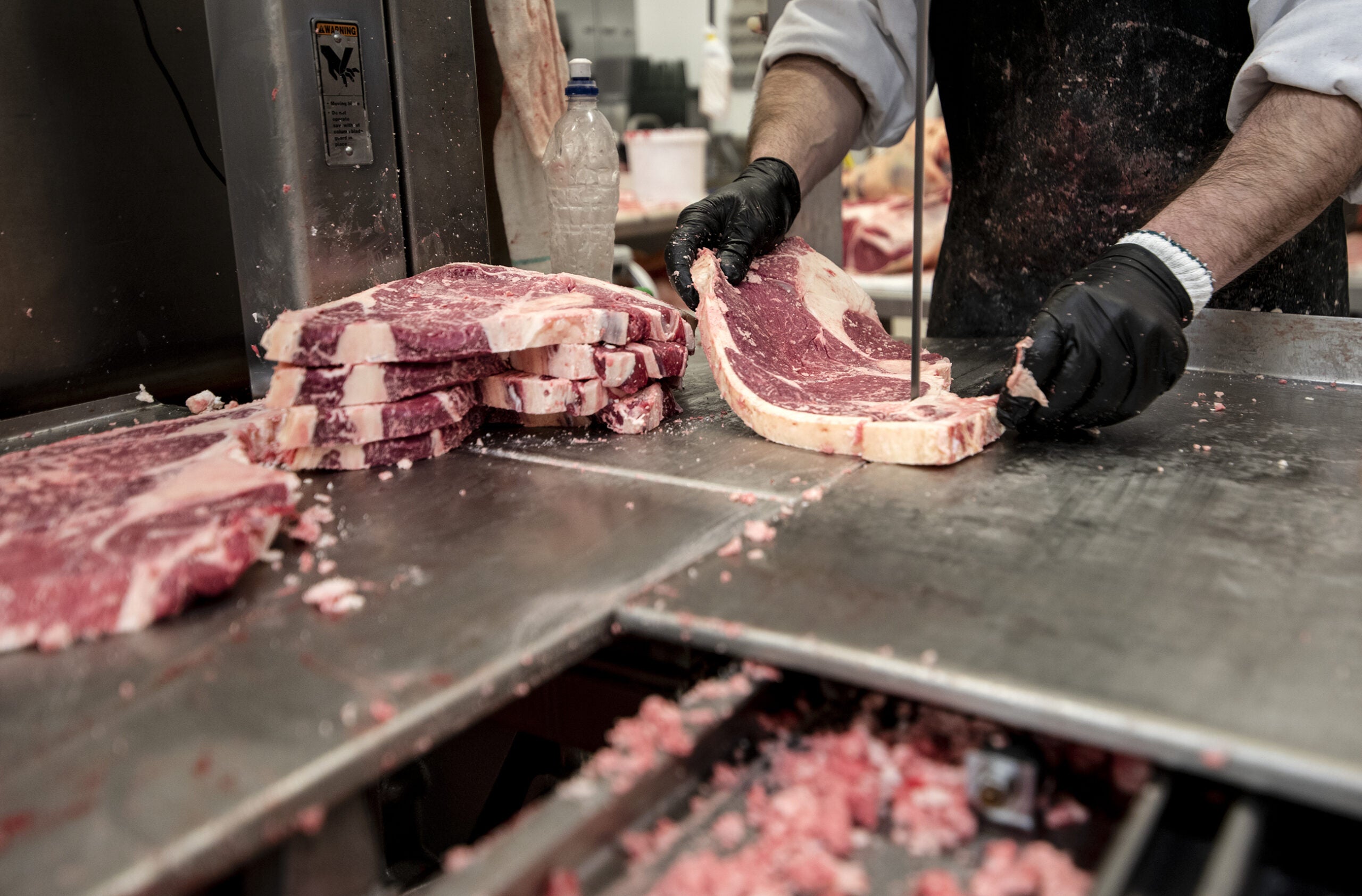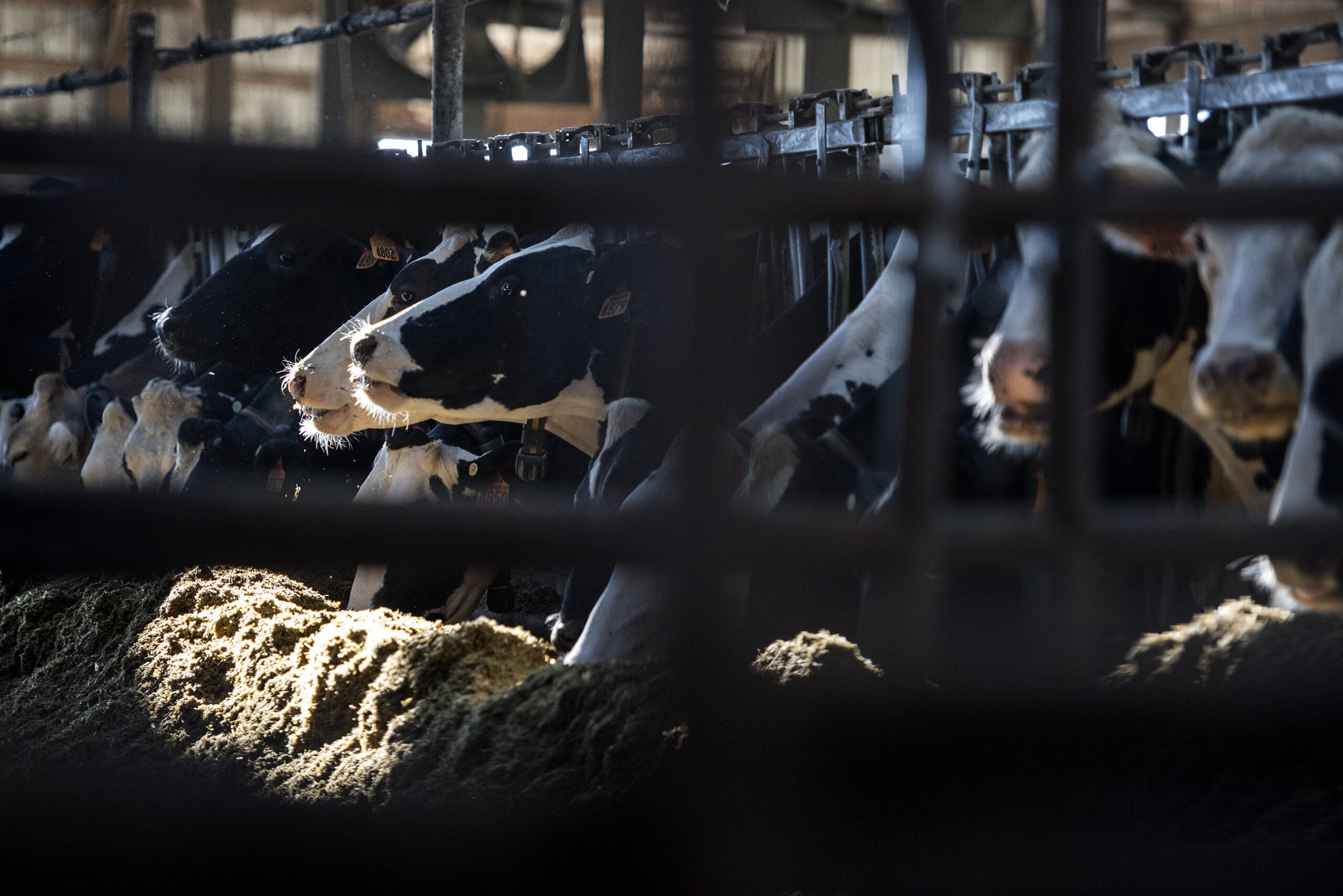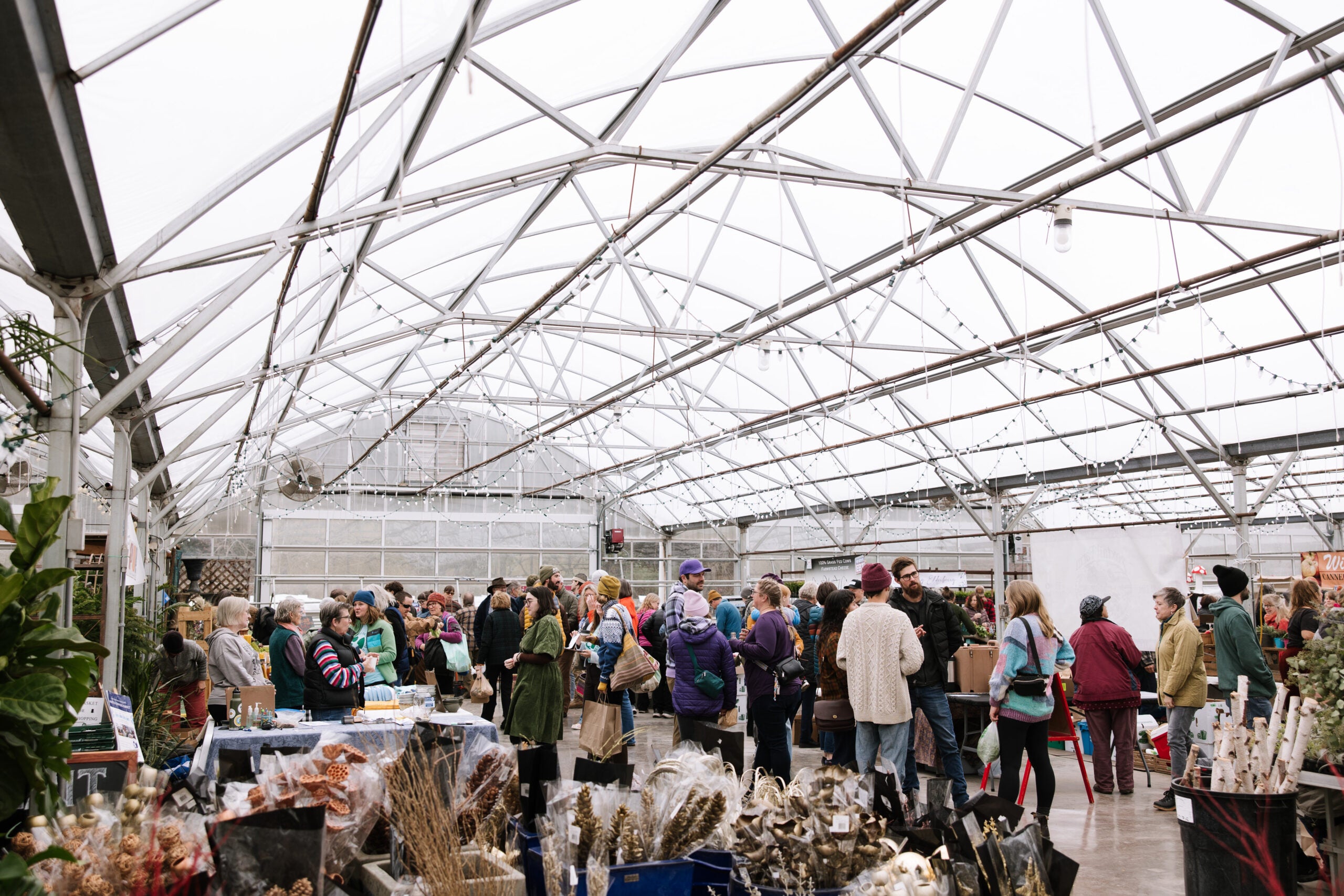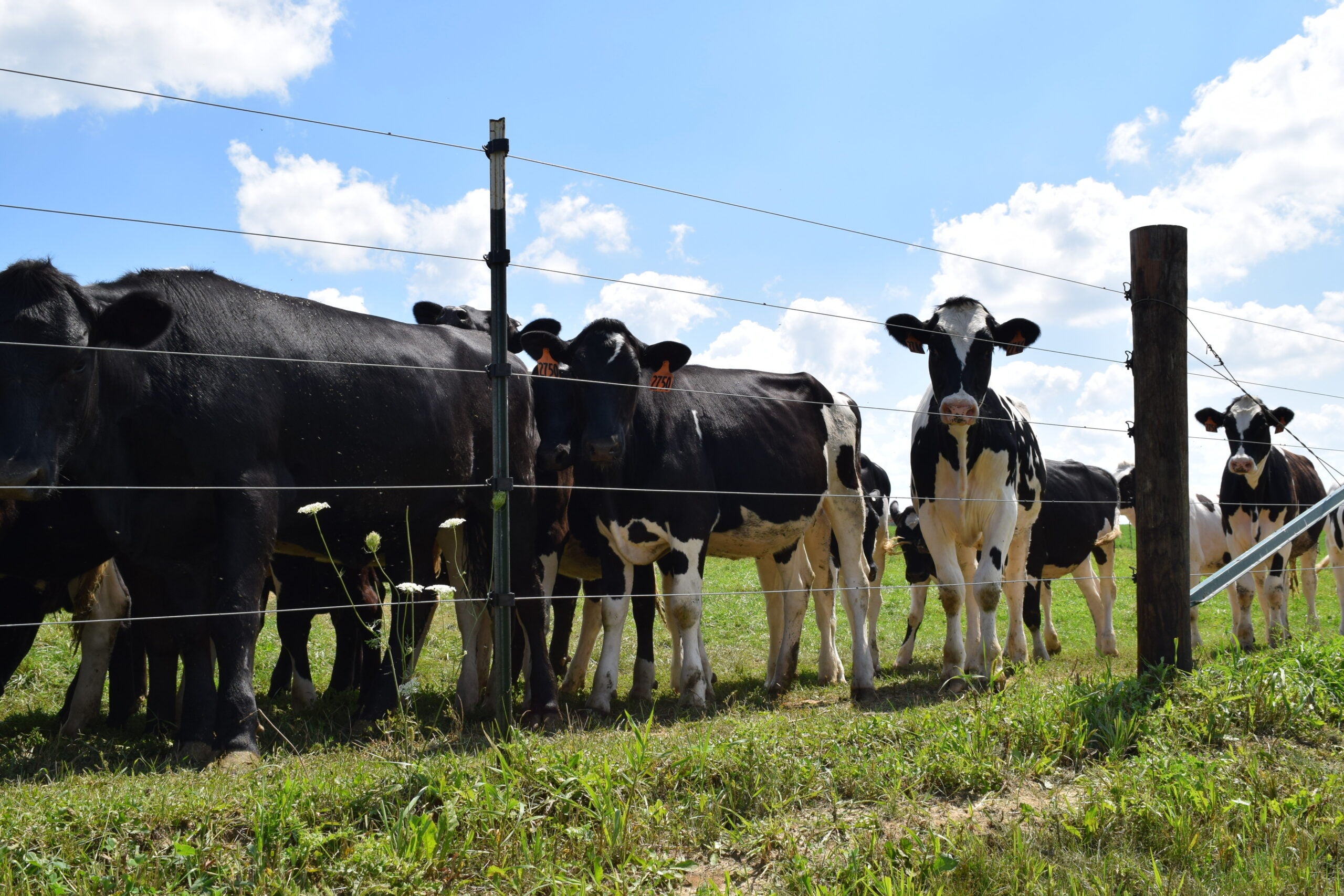As a butcher, Heather Oppor can’t control how everyone feels about eating meat. But she has turned her mind, energy and work toward what she can control.
“There (are) a lot of new techniques and practices that are coming about,” she said. “And it’s all in effort to make sure that these animals are comfortable, healthy and (treated) humanely.”
Oppor stresses the importance of being mindful, caring and compassionate in this field. It’s worth considering the entire process that brings an animal’s meat to the table — from being raised to being harvested.
News with a little more humanity
WPR’s “Wisconsin Today” newsletter keeps you connected to the state you love without feeling overwhelmed. No paywall. No agenda. No corporate filter.
As an artisan butcher, more specifically, she said it has been hard to watch small towns see their butchers go out of business.
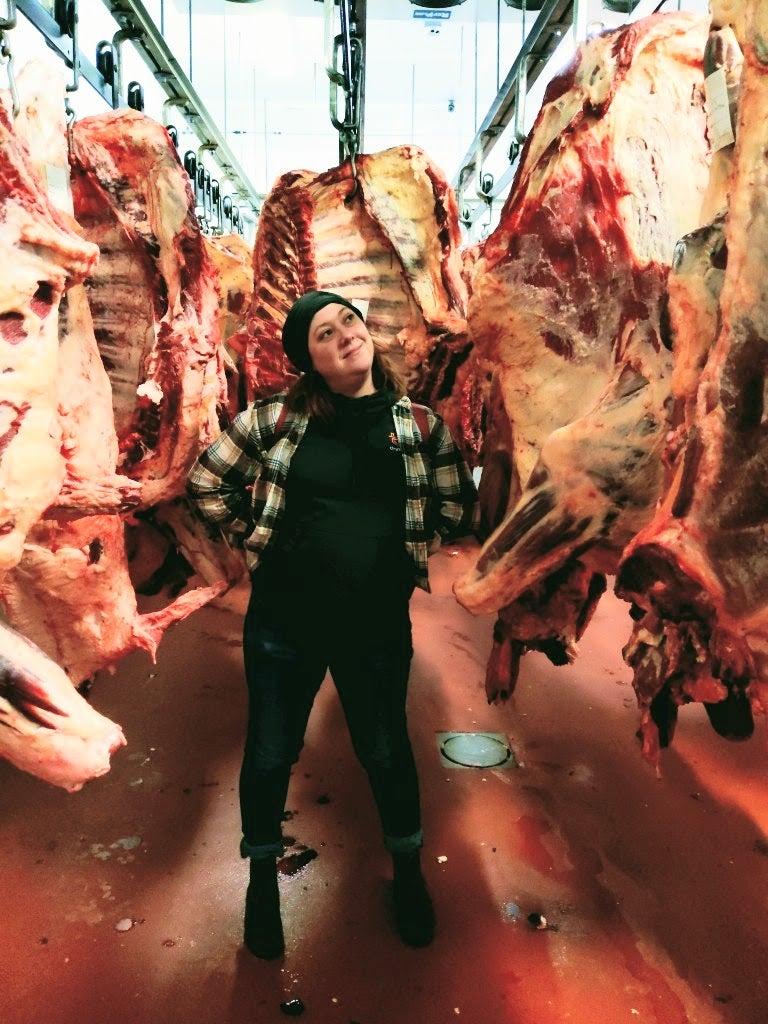
Yes, it can be more convenient and cheaper to shop at a larger grocery store, but she said paying more gets more. Smaller, local butchers are often paying farmers more fair prices for the animals they provide, she said. The labor is done by hand, not by machine.
“I do think it’s really important that we maintain that relationship between local farms and butchers,” she said recently on WPR’s “The Morning Show.”
After about 15 years in marketing, Oppor pivoted and went to culinary school. She was the meat manager at the Willy Street Co-op in Madison, and she taught at Madison College, according to a piece she wrote for Love Wisconsin, a digital storytelling project focused on the culture and future of the state.
A student told her about a meat processing facility in Argyle. Eventually, she and her husband sold their house and moved there. Through the company, she is working in six counties to do on-farm slaughter and has noticed a lack of processing and harvesting facilities in southwestern Wisconsin.
She said some of her missions through the Meatsmith Co-op — which serves Lafayette, Green, Iowa, Dane, Grant, and Rock counties — are to “put as little stress on the animal as possible and make it easier for farmers to get their livestock to processing facilities.”
“Our goal is to basically have farmers and workers own the process,” she said. “Just give farmers and workers a say in creating a more sustainable meat system for our area.”
Farmers can need between six months and two years of notice to bring their animals to a facility, she said. That can bring more costs on the farmers who have to take care of the animals for longer. And, having to drive hours and hours to the nearest facility is hard on the animals and the environment.
Beyond expanding access, Oppor also wants to expand education in this field. She said she is hoping to add more apprenticeship programs with the help of grant or government funding. She wants to reach people from communities that don’t have an available program already.
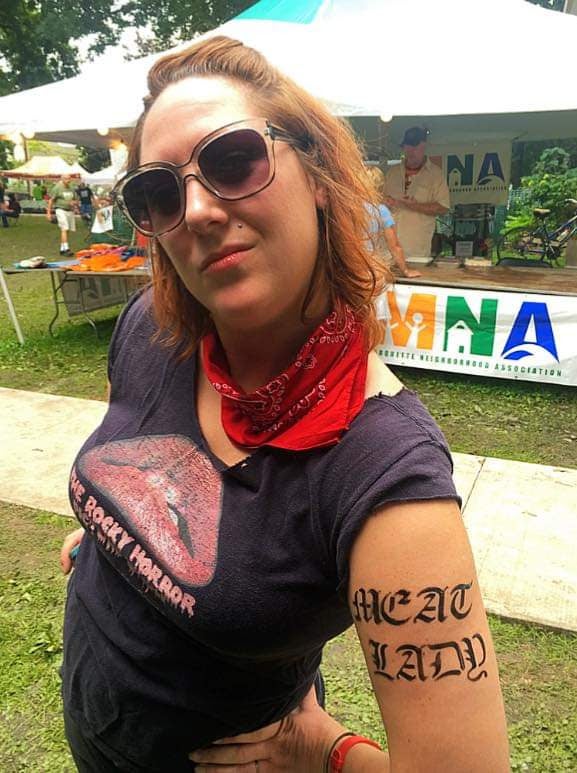
Education can mean taking classes, but it can also come from a single person and a single meal. She believes consumers should consider how food makes it to their plates.
“Education is a huge part of that. We need to nurture and grow things in order to sustain ourselves,” she wrote in her piece. “Personally, I think people should have to watch something die at least once before they eat it to get the full perspective of how it impacts other things.”
Butchery can be an art form. She said she wants to “create something beautiful.”
“I’m never going to stop eating meat,” she wrote. “But I want this process to be as humane as possible.”
Wisconsin Public Radio, © Copyright 2026, Board of Regents of the University of Wisconsin System and Wisconsin Educational Communications Board.
